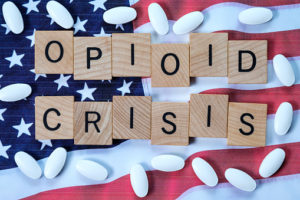Earlier this month, United States Surgeon General, Dr. Jerome Adams issued a national advisory encouraging more Americans to have access to, and carry the opioid overdose reversing drug Naloxone, which can save the life of someone overdosing on opioids.
 This is the first Surgeon General advisory issued in more than a decade, which exemplifies how serious the opioid crisis is in the United States. America’s top doctor stated that “the situation is all around us.” adding “knowing how to use Naloxone and keeping it within reach can save a life.”
This is the first Surgeon General advisory issued in more than a decade, which exemplifies how serious the opioid crisis is in the United States. America’s top doctor stated that “the situation is all around us.” adding “knowing how to use Naloxone and keeping it within reach can save a life.”
The opioid epidemic has killed over 250,000 people over the past decade and the problem is growing. In fact, the number of Americans who died from an overdose has doubled from 21,000 in 2010 to over 42,000 in 2016. It is estimated that we lose 115 people in the United States every day to an opioid overdose, or one person every 12 ½ minutes.
The rise in opioid overdoses is largely attributed to an increase in prescription medications, heroin, and most notably synthetic drugs, such as Fentanyl, which is 50 times more potent than heroin.
Naloxone, also known by the brand name Narcan, can be administered either as an injection or as a nasal mist, and is currently carried by emergency medical technicians and police officers, but because over three quarters of the opioid overdoses occur outside of a medical setting, it is important to empower civilians to help. Dr. Adams believes making naloxone more available in communities across the country is critical to reducing overdose death and research has shown that when Naloxone and overdose education is available to the public, overdoses decrease.
What should remain clear is that making Naloxone readily available to the public is not intended to serve as a long-term treatment option. According to Dr. Seeth Vivek, Chairman of Mental Health and Addiction Services at Jamaica Hospital Medical Center and Flushing Hospital Medical Center, “Critics need to understand that addiction is a chronic disease and they should look at this recommendation the same way they look at other life-saving measures, such as CPR training, the Heimlich maneuver, or access to an epi-pen to treat an allergic reaction.” Administering Naloxone should be considered an emergency intervention to suspend the effects of an overdose, but it needs to be the bridge to long term services and support that can lead to a complete recovery.
Flushing Hospital offers both inpatient and outpatient addiction services programs. To learn more about our Reflections outpatient program, please call 718-670-5078. To learn more about our inpatient Chemical Dependancy Unit, please call 718-670-5540.
All content of this newsletter is intended for general information purposes only and is not intended or implied to be a substitute for professional medical advice, diagnosis or treatment. Please consult a medical professional before adopting any of the suggestions on this page. You must never disregard professional medical advice or delay seeking medical treatment based upon any content of this newsletter. PROMPTLY CONSULT YOUR PHYSICIAN OR CALL 911 IF YOU BELIEVE YOU HAVE A MEDICAL EMERGENCY.
